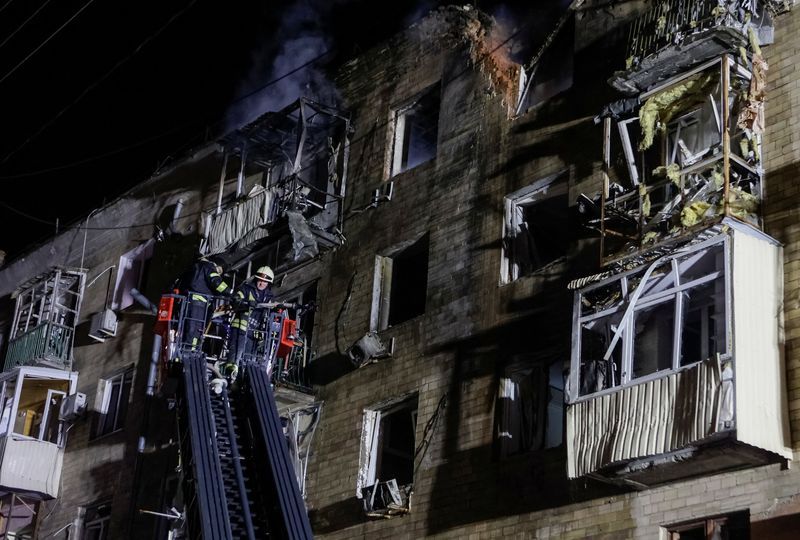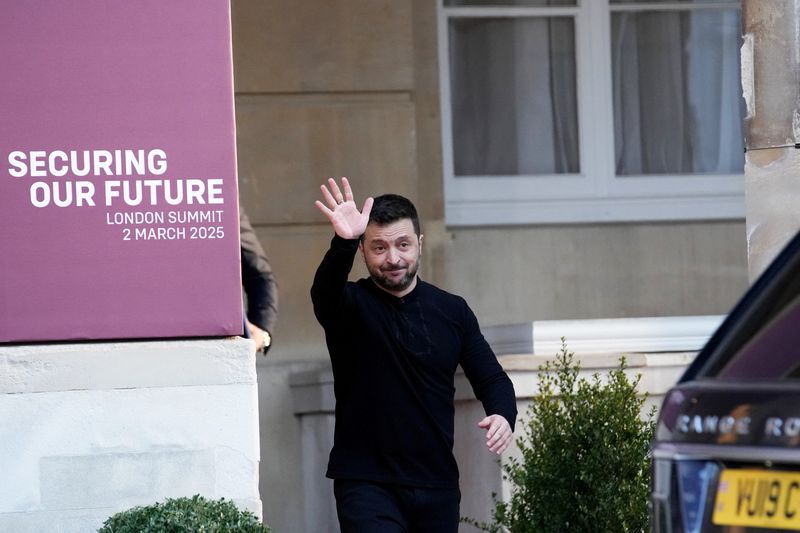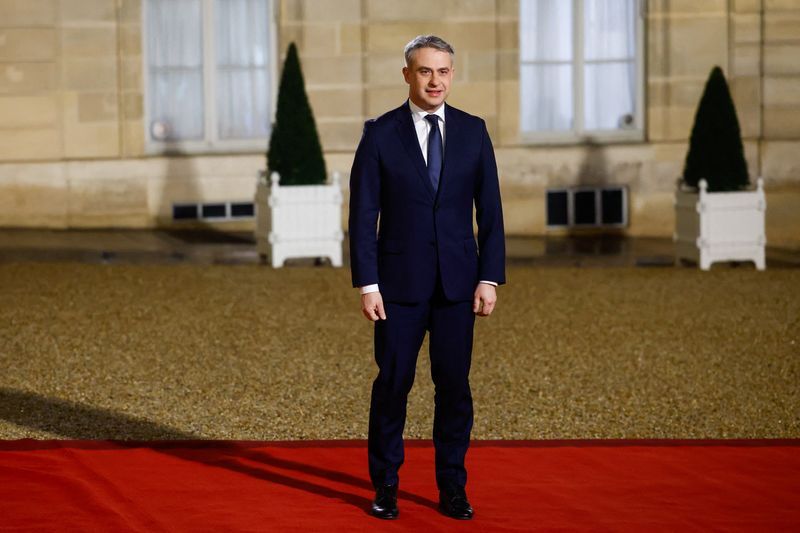
FILE PHOTO: Polish Prime Minister Donald Tusk speaks during a press statement with French President Emmanuel Macron and German Chancellor Olaf Scholz, ahead of their trilateral meeting of the consultation forum 'Weimar Triangle', at the Chancellery in Berlin, Germany March 15, 2024. REUTERS/Annegret Hilse/File Photo
WARSAW (Reuters) - German Chancellor Olaf Scholz and Polish Prime Minister Donald Tusk meet in Warsaw on Tuesday, as nations with a difficult shared history seek to reinforce cooperation in the face of security challenges and political turbulence in Europe.
The leaders will take part in intergovernmental consultations featuring the countries' cabinets, the first such meeting since 2018.
Relations between the countries have warmed since Tusk's pro-European coalition came to power in December, ending eight years of nationalist rule in Poland during which the Law and Justice (PiS) government regularly painted Germany as a hostile force.
The meeting comes as the countries face security challenges linked to the war in Ukraine and a turbulent geopolitical environment, with the far right winning the first round of parliamentary elections in France and European leaders bracing for the possibility of Donald Trump returning as U.S. president.
Polish Deputy Foreign Minister Marek Prawda told Reuters that the meeting was the "opening of conversation in a spirit of concern about the future".
"Because we have a geopolitical turn in the world, the EU is no longer a factory of rules, but is becoming a community of fate, and we have to respond to this change with at least some policy of increasing military capabilities," he said.
SECURITY
With tensions running high on the border with Belarus and Russian missile strikes on Ukraine regularly leading to NATO aircraft being scrambled in Poland, security concerns will be high on the agenda in Warsaw.
"Poland's security and cohesion within NATO are extremely important for Germany," said a German government source.
However, while Russia's invasion of Ukraine has united the two European Union and NATO members in recognition of the importance of bolstering their defences, differences exist on how this should be achieved
Tusk has been a vocal propent of common EU financing of defence projects, but Scholz has said that the bloc should not be involved in financing armaments purchases or national defence budgets.
Furthermore, 85 years on from the start of World War Two many in Poland still feel Germany has not done enough to make amends for a conflict that left the country in ruins and killed about a fifth of its population, including the vast majority of its 3 million Jewish citizens.
German daily Sueddeutsche Zeitung reported on Monday that Berlin will propose a package that will include support for defending Poland's eastern border as well as funds for victims of the Nazi German occupation and the construction of a memorial and meeting place.
The German government has already approved funding for the "German-Polish House" to be founded in Berlin as a memorial to victims of Nazi Germany's occupation of Poland.
(Reporting by Marek Strzelecki and Barbara Erling in Warsaw, Andreas Rinke in Berlin, writing by Alan Charlish; Editing by Toby Chopra)




































